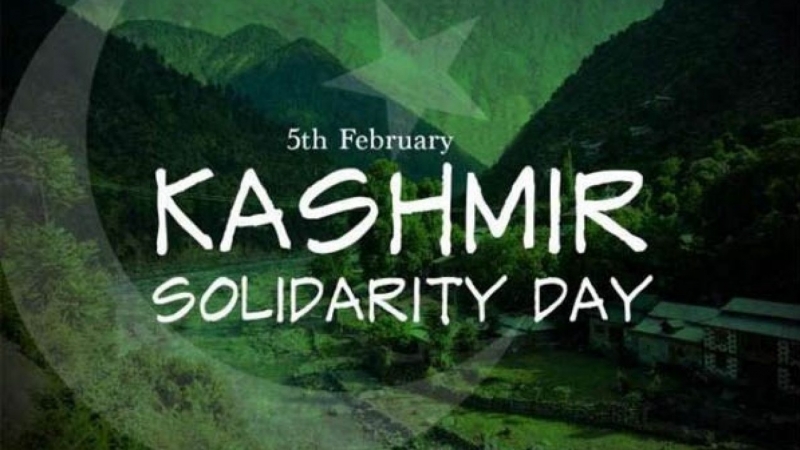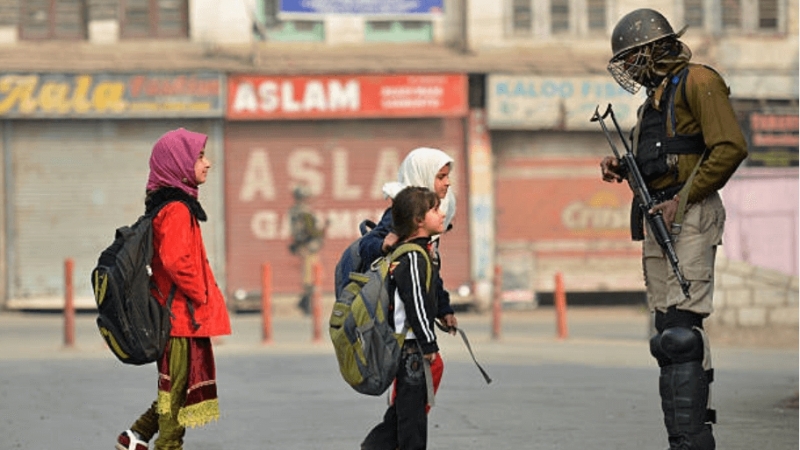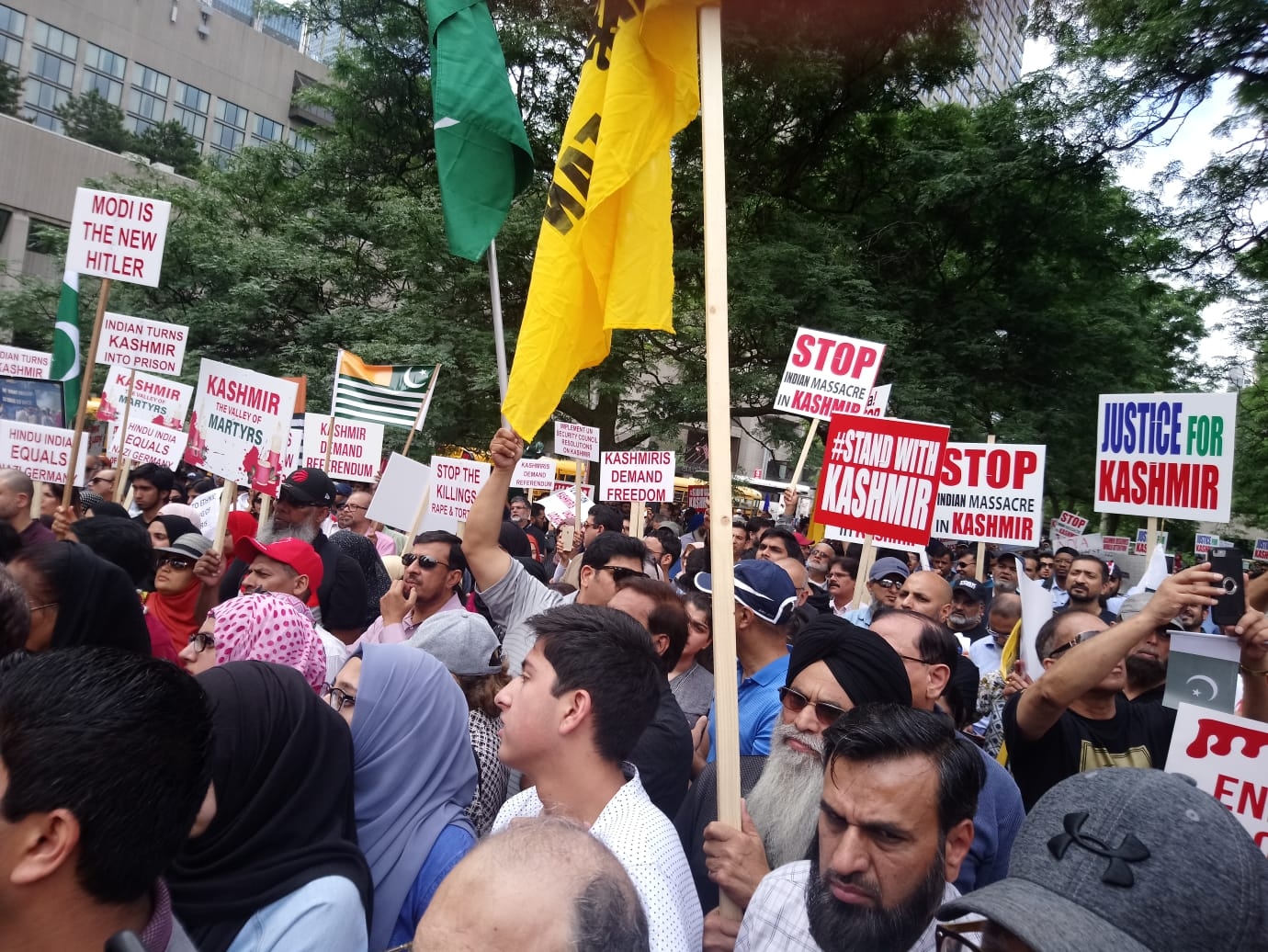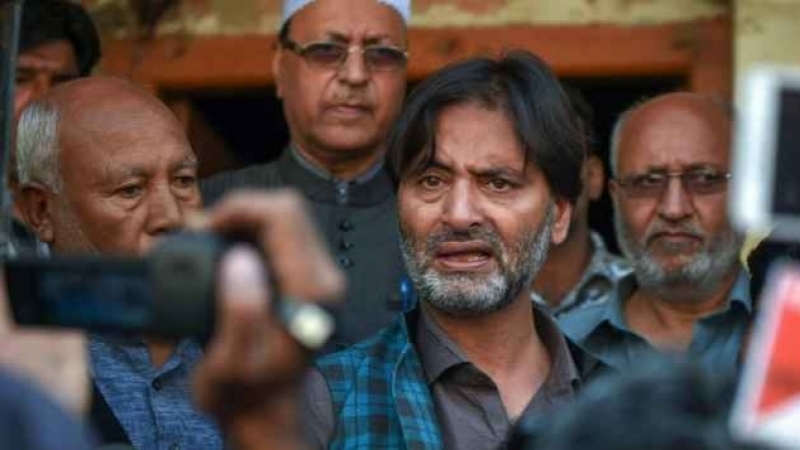Three Kashmiri photojournalists awarded Pulitzer Prize for capturing the people's struggle against occupation
Empowering Weak & OppressedTahir Mahmoud
Ramadan 12, 1441 2020-05-05
Daily News Analysis
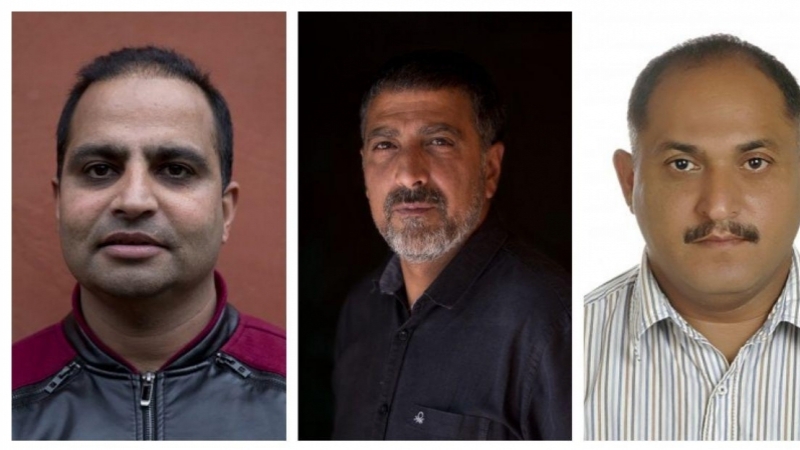
Three Kashmiri photojournalists—Dar Yasin (aka Yasin Dar), Mukhtar Khan and Channi Anand—have been awarded this year’s Pulitzer Prize for capturing the people’s struggle in Indian occupied Kashmir.
Yasin and Khan are based in Srinagar while Anand is from Jammu.
All three work for the Associated Press (AP).
Traditionally, the winners’ names are announced at a ceremony held at Columbia University.
This year, however, due to the coronavirus pandemic,Pulitzer board administrator Dana Canedy declared the winners from her living room via a livestream on YouTube.
Pulitzer recognized the Kashmiri photographers for their “striking images of life” in the internationally-recognized disputed state of Jammu and Kashmir.
While under illegal Indian occupation since October 1947, the Modi regime in India heightened tensions by unilaterally abrogating its special status in August 2019.
Further, it imposed a complete lockdown on eight million Kashmiris and total blackout of what its occupation forces were doing in Kashmir by throwing all journalists out of the state.
The lockdown has now lasted nine months and has been exacerbated by the pandemic amid desperate shortage of ventilators and other supplies.
The occupiers’ refusal to allow 4G Internet services—only the much slower 2G is allowed and that too sporadically—has meant that doctors cannot access vital information in their fight against the pandemic.
The people’s valiant struggle against the brutal occupation, however, has continued and been captured by the three photojournalists.
A picture, they say, is worth a thousand words.
And while the Indian occupation forces on orders from their political masters in Delhi, have imposed draconian laws and clampdowns the photojournalists managed to improvise.
Capturing the essence of the struggle and letting the world know about it required courage, ingenuity and daring.
Hiding their cameras in vegetable bags and sometimes taking cover in strangers’ homes because of the military’s ubiquitous presence, they captured images of the life-and-death struggle underway in Kashmir.
In one iconic image, a masked Kashmiri youth with stone in hand is seen kicking an armoured personnel carrier.
This reminds one of a Palestinian child with stone in hand, confronting an Israeli tank.
Such images capture the true spirit of the resistance.
Capturing images of the Kashmiri people’s struggle is one thing; letting the world know about it has been no less daunting.
With no Internet or cell phone services, they had to improvise and find ways to get their prized images to the AP’s offices in Delhi.
But where there is a will, there is a way.
They had to persuade travellers flying out of Srinagar to Delhi to carry the photo files saved on USBs and deliver them to AP’s office in Delhi.
“It was always cat-and-mouse,” Yasin recalled on Monday (May 5) in an email to Al Jazeera. “These things made us more determined than ever to never be silenced.”
The AP’s president and CEO Gary Pruitt said their work was “important and superb”, the Qatari-based network quoted him as saying.
“Thanks to the team inside Kashmir, the world was able to witness a dramatic escalation of the long struggle over the region’s independence.”
In recent weeks, Indian occupation forces have escalated firing along the Line of Control (LoC) that separates the two parts of Kashmir, resulting in the deaths of several civilians.
Since last August, India has also imprisoned thousands of Kashmiri youth, politicians, lawyers and other activists.
Some have been moved out of Kashmir and locked up in prisons in India.
This is a violation of the Fourth Geneva Convention.
Some political detainees such as Yasin Malik and Mian Qayoom (the latter is 73 years old and both are in poor health) are held in the notorious Tihar Jail in appalling conditions.
Calls by international human rights organizations as well as the UN Secretary General for their immediate release have fallen on deaf ears in India.
Despite India’s brutal clampdown, the world is gradually waking up to the plight of the Kashmiri people.
Awarding the Pulitzer prize to three Kashmiri photojournalists will go a long way to highlight the reality of India’s bloody suppression of the Kashmiri people.
It should spur the global community and all people of conscience to raise their collective voices in support of the Kashmiri people and help end India’s illegal brutal occupation.
